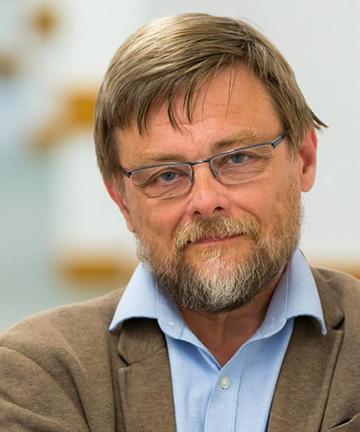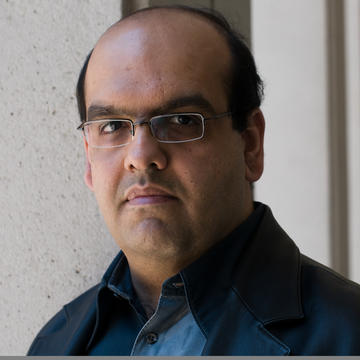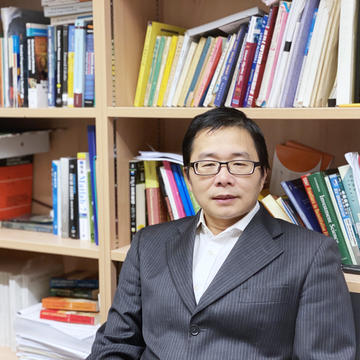Mathematical Modelling and Data Analytics
Introduction
The University of Oxford has launched the Oxford Suzhou Centre for Advanced Research (OSCAR), Oxford’s research campus in China. The Mathematical Institute proposes to use this opportunity to establish a presence in China through OSCAR by establishing a research institute for Mathematical Modelling and Data Analytics. The Institute will leverage the Oxford Mathematical Institute’s research strengths in quantitative finance, stochastic modelling, data science and numerical analysis to
- promote research projects with Chinese partners focused on the design and analysis of mathematical models and advanced algorithms for data analytics and the applications of these methods in quantitative finance and engineering,
- organise high visibility scientific events showcasing research done at the Mathematical Institute especially in the fields of Data Science and Computational Finance,
- build collaborative projects with Chinese partners, especially in the financial sector (exchanges, clearinghouses and financial institutions)
The Institute will serve as an umbrella for scientific collaborations with Chinese universities, research institutes and industry partners, and as a window towards China for Oxford mathematicians.
The Institute will engage in research ranging from (but not limited to)
- Mathematical modelling of complex, large-scale random systems
- Advanced methods for the analysis of complex structured and unstructured data sets, in particular financial data sets
- Rough path analysis, signatures and data analysis
- Quantitative finance, financial risk management, machine learning techniques in finance,
through specific research projects. The Institute will have a focus on (but will not be limited to) multimodal streamed data and associated machine learning techniques based on applications of rough path analysis, Monte Carlo methods and high performance computing (HPC) and analysis of financial models.
The Institute will leverage the members’ existing collaborations with the financial sector and with the Alan Turing Institute.
Principal Investigators

Prof. Terry Lyons
FLSW FRSE FRS
Wallis Professor of Mathematics
Fellow of the Alan Turing Institute
The long-term research interests are all focused on the calculus of Rough Paths, Stochastic Analysis, and to applications – originally to Finance, and now more generally; the higher order methods for summarizing of complex multimodal data made possible by rough path theory have been used for effective classification and decision making on a large scale and form a cutting edge area for research. The mathematical techniques involve a wide range: from pure mathematical ones, relating to the structure, based around rough path theory, but also around Hopf algebras, to (coupled) questions of efficient numerical calculation. Effective outcomes require the integration of these techniques with other solutions (e.g. deep learning) to achieve state of the art. He has developed algorithms for Chinese and Arabic handwriting recognition, mood classification in mental health, as well as the recognition of actions in noisy observation of human movement.

Professor Rama Cont
Professor of Mathematical Finance
Senior Research Fellow, Institute for New Economic Thinking
His research focuses on stochastic analysis, stochastic processes and mathematical modeling in finance, especially issues related to high-frequency modeling, quantitative risk management, regulation, financial stability and systemic risk. He is scientific advisor to the International Monetary Fund (IMF) and the central bank of Norway and has previously worked as advisor to the European Central Bank, the Bank of England, the New York Federal Reserve, the Chicago Mercantile Exchange and the Hong Kong Exchange (HKEX) on matters related to stress testing, risk management and financial stability.

Prof. Zhongmin Qian
Professor of Mathematics
He is interested in stochastic analysis: diffusion processes, rough path analysis and machine learning, statistical mechanics, condensed matter physics and quantum fields. He is also interested in the active portfolio management, exchange rates, stochastic volatility models and high-frequency data analysis.

Prof. Hanqing Jin
Prof. Jin’s research is in Mathematical Finance, applied stochastic analysis and optimization, focusing on the study on portfolio selection (by stochastic control and martingale method) and optimal stopping in financial markets. Recently he is also working on behavioural finance and time consistency in portfolio selection models.
Research Scientist

Dr. Jiaqi Kuang / Prof. Zhongming Qian's group
Dr. Jiaqi Kuang joined OSCAR in April 2023 as a Research Scientist in Prof. Zhongmin Qian’s group. She achieved her PhD degree in 2022 at University of Liverpool. Her previous research focused on the role of information disclosure in the Fintech, and the application of natural language processing (sentiment analysis) in the Fintech. At OSCAR, Dr. Jiaqi Kuang will continue to research the application of deep learning in the financial market.



